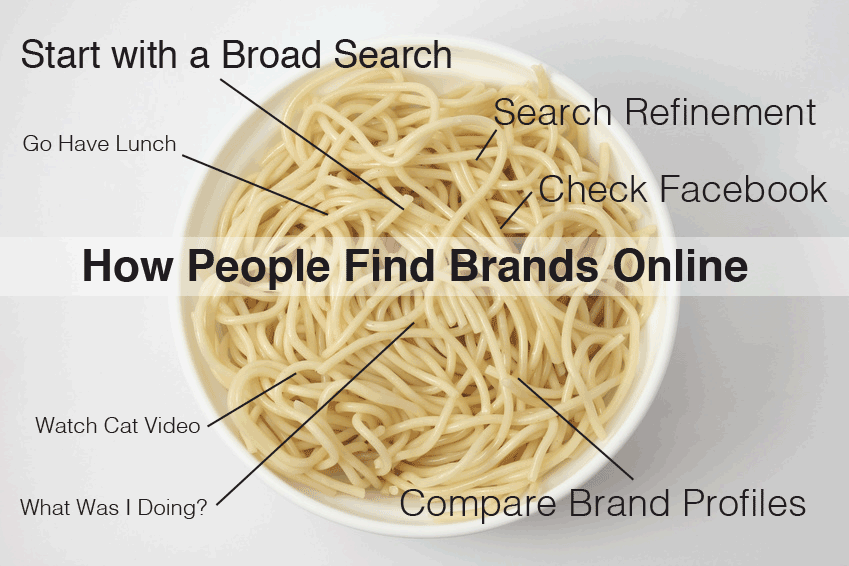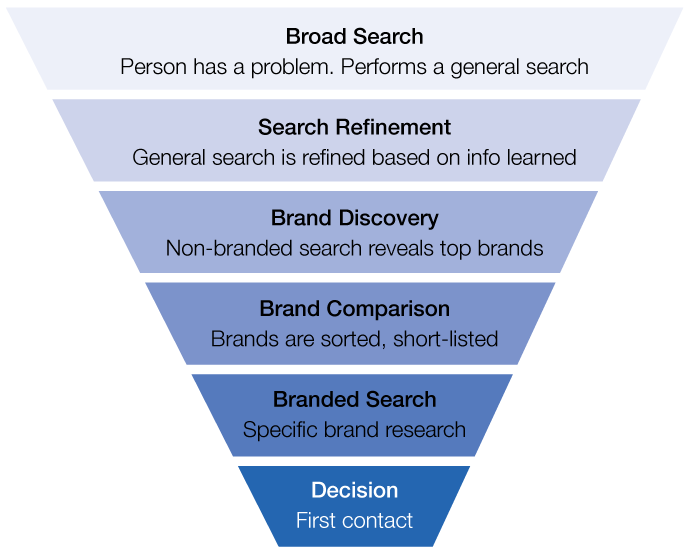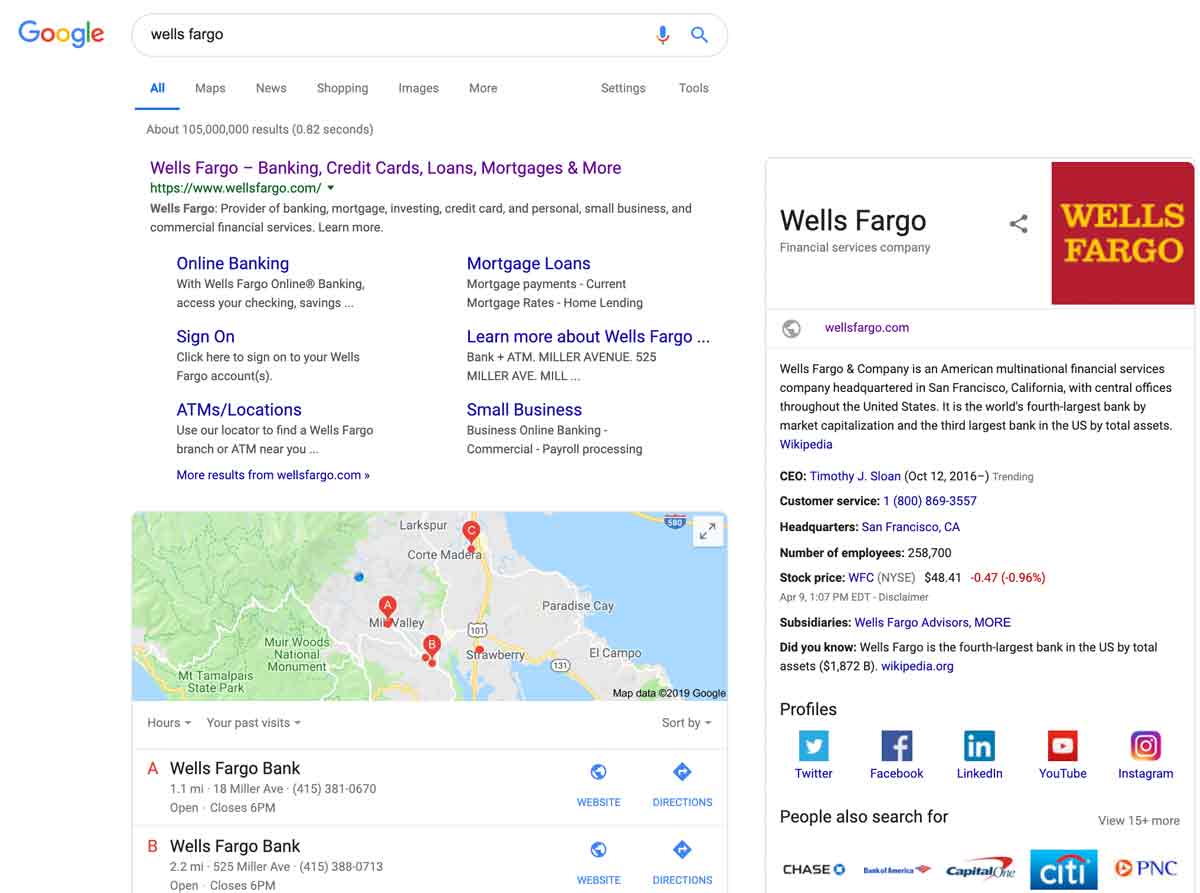How People Really Find a Brand Online ??The Meandering Path to Discovery
When people search online for a product or service, they rarely do so in a linear fashion. The path they take often seems random to an outside observer and, when mapped, can look like a bowl of cooked noodles.

This path seems far more like a scavenger hunt than anything else, because when a consumer begins their search, they are ignorant of what they really need. The process of search is one of discovery and self-education. In spite of the confusion, there is a method to the apparent madness. When performing internet reputation services we take this type of consumer behavior into account.
Understanding typical consumer behavior will help your pages rank higher for your keywords. Since most people will visit no more than four pages on a website before either finding what they are looking for or giving up, your site needs to rank. If it doesn’t appear in the search results, you’re missing out on many potential customers.
The branded search funnel

Broad searches – people are still educating themselves
Like any sales process, consumers in search of a solution travel through a sales funnel. At the top of the funnel are broad searches. At this stage, consumers start their search at the most general of levels. They approach their search without an idea of what they are truly looking for and often naturally click on brand home pages.
Broad searches might be called “short-tailed” searches, like “nearby restaurants” or “books like Harry Potter.”This makes sense because many times, people are still looking for more information after they’ve already started to make a decision. As people start to learn more about their options, they can refine their broad searches to zero in on the best option.
Search refinement – queries begin to morph
Broad searches become “long-tail” searches as more and more refinement takes place. More words are added, search phrases are modified, and more detail appears in each phrase the consumer enters as they hunt for a business. At this point, they’re not considering your brand (or anyone else’s) because they’re still in “educational” mode – they don’t know about you yet. Only once they’re satisfied that their educational requirements have been at least partially met do they engage in actual brand discovery.
Brand discovery – YAY! You’ve been shortlisted
The brand discovery portion of the sales funnel is the first place where the consumer becomes aware of a specific brand. During the brand discovery phase, the consumer compares different brands based on their search results and their underlying content. People are not reading entire web pages, they are scanning them and focusing briefly on things that catch their eye. Eventually, they will shortlist a number of brands. If your content has informed their self-education about their need, the chance of your brand ending up on their shorlist goes up by leaps and bounds.
Branded searches – they finally know your name
From the shortlist, consumers finally engage in branded searches. Congratulations if your company, product, or service has made the shortlist!
What are branded searches? Branded searches are searches that include terms about a specific company, product, service, or person associated with the brand. These kinds of search profiles include reviews, in-depth articles about a company, or its leadership.
The objective of every brand is to “own” the first page of search results in a positive way, because one sour result can end the buyer’s journey to your doorstep. This is why it’s important to keep that brand in tip-top shape.
Once a consumer has narrowed the field to the best possible choice, they will begin to consider engaging with your brand online fully. It’s during these last two steps in the buyer’s journey that online reputation management becomes most important.
People Compare Brands Side-by-Side in Search Results
When people are deciding whether they will contact one brand or the other for products or services, they will compare these brands side-by-side in search results. These results are known collectively as the “search profile” of a brand. Often the brand with the strongest online search profile is the brand that wins the business.
Internet reputation management helps brands compare favorably when the time comes for people to decide which company to do business with. Some campaigns improve star ratings, and others remove problem search results. The most impactful campaigns build a near bulletproof online profile using search engine optimization techniques.
Branded Search FAQs
What is branded search?
Branded searches are searches that include terms about a specific company, product, service, or person associated with the brand. These are the kinds of search profiles that include reviews, in-depth articles about a company, or its leadership.
How do people find brands online?
There is typically a search funnel involved with finding brands online. People will first perform a broad search to answer a question or problem. Then, they will refine the search and compare the brands found. Next, the person will specify their original search to include the newly discovered brand names. Finally, the person will contact the winning brand.
What do branded searches mean for my business?
It is critical for brands to own their search results. This means they should have as many owned properties as possible on the first page of Google search results. They should also work to remove or push down negative brand mentions.
Tags: Reputation Marketing.


